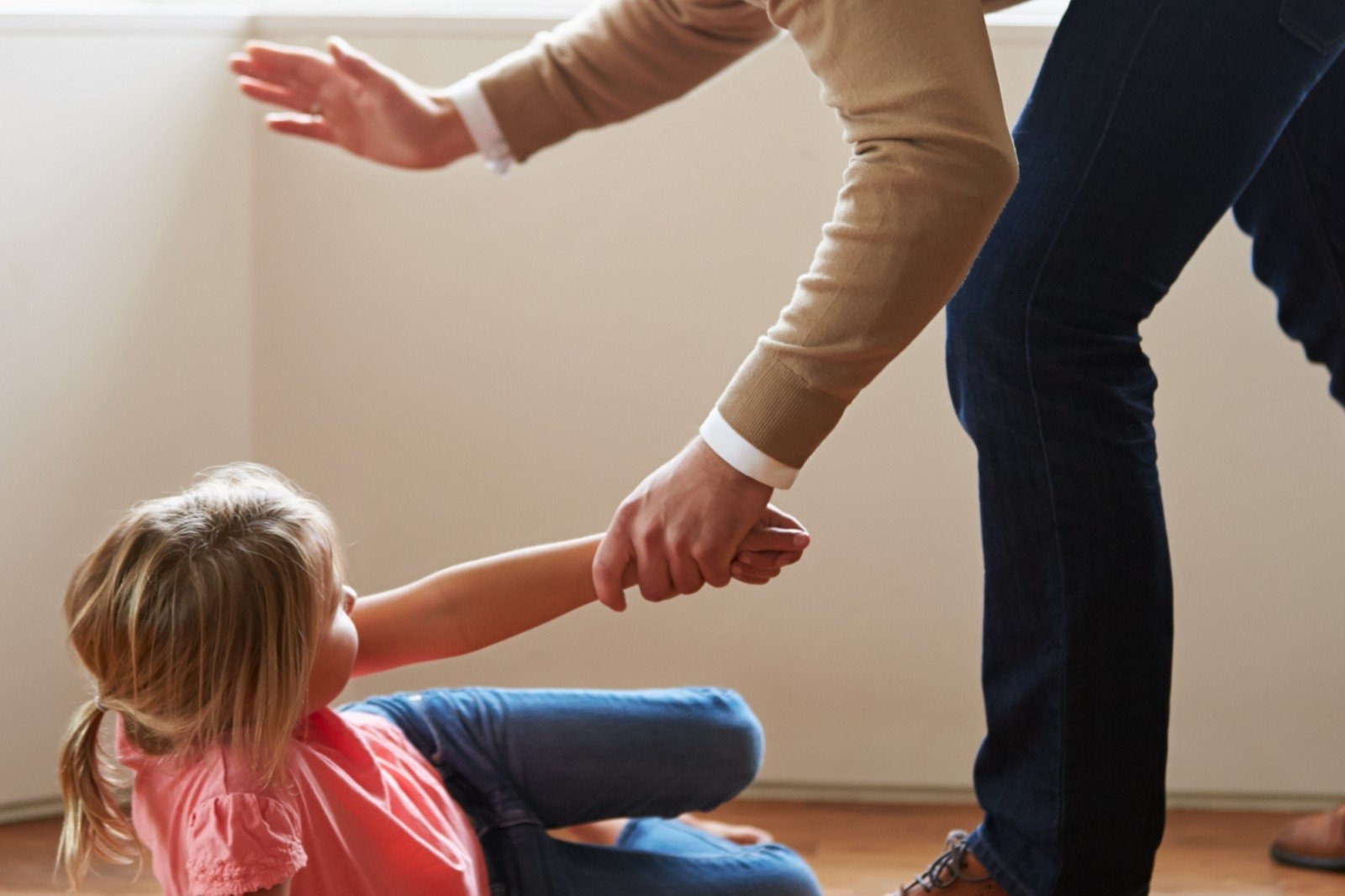How to protect children against violence and abuse

HOW TO PROTECT CHILDREN AGAINST VIOLENCE AND ABUSE
In this article we will talk about what we should know:
- About the type of violence
- About what to do to defend children from violence
- How to teach children to solve problems in a way that is not used for aggression and coercion
There are various types of violence:
- Physical violence-churning, kicking, or deliberate abuse of a child in any way-the most common forms of violence.
- Psychological violence (emotional and verbal)-offensive, debilitating words that raise pain, reduce self-confidence, devalue self-esteem or otherwise be influenced by the psyche of the child.
- Sexual violence-any involvement of a child in sexual intercourse or related acts.
- Neglect-the dissatisfaction of the various needs of the child, such as material and emotional.
Domestic violence
What can you do?
- You have to do everything you can to protect your child. If your child has been seriously injured, bruised or kicked at any time, regardless of the cause, make sure that he is given the necessary medical assistance and care.
- If you are prone to violence or feel that you can be violent against a child, you need help and support. You are responsible to yourself and your child to turn to specialists.
- Parents sometimes worry that children will be deprived of them. However, this should only be used as an inevitable measure to solve the problem.
- If you regularly feel stress and anger and feel that you may lose your selfname, we suggest:
- Count to 10 and inhalate deeply. Give yourself and the child a "break"
- Talk to a friend or relative and tell them how you feel
- Find a way to relax. It can be a variety of exercises, music listening, a cup of tea, a hot bath or anything that suits you
- Remember about what is associated with positive feelings for a child, what causes joy and love for their child
- Stressful situations reduce humor
- Discover the time to calm you in acceptable ways.
- Ask for help. To be parents-this is a huge commitment to your children, you have to feel responsibility for their future. If you have suffered violence and abuse as a child, try to ensure that your child will not suffer the same.
- If you suspect the next child grows in an environment where there is violence, help that child. Do not be indifferent. Report violence to the police, the social service, and the Children's Rights protection service.
Violence at school
- Attacks or other violent acts are increasingly occurring in many schools.
- An attack is a deliberate action to scare or injure. It can be both physical and psychological. This leads to severe consequences, disasters.
- In some cases, children perish from the hands of the torture and, in some cases, commit suicide, without raising violence and the consequences of it.
What can you do?
- Seriously look at any violent event at school
- Talk to your child about what's happening in school and listen attentively to any of their concerns. Remind them that you are on their side and that you will always believe what they are telling you.
- Talk about it with the child's teacher or school administration. Search for help.
If violence against your child has been used:
- Tell the child that it is not his fault
- Help your child find ways to deal with violence, suggest a few outcomes from the situations that have arisen
- Do not encourage an aggressive response to an attack. This will likely only worsen the situation
- If the problem exists, do not ignore it. This allows the attacker to continue his work and the fact that the attack is an acceptable action
- Report an attack on the school. Include a child's teacher and parents of other children in the problem
- Give your child self-confidence
If your child has initiated a violent event:
- Explain to the child that the harassing is unacceptable. Point out that you love him and you want him to do so.
- Think about who can translate your child to do so. Maybe what happens at school, at home. Find out what makes the following happen:
- Does the child receive enough positive attention from you?
- Maybe your child was able to learn aggressive behavior from you or other adults at home or in the vicinity?
- Have you explained to your child how serious and damaging the phenomenon is to be harassing? Ask him to imagine how he feels attacked.
- Let me clearly understand that you would like him to behave.
Parents can solve many problems.
Positive upbringing
- Children whose parents are loving their family and set the right rules of communication are growing up with the responsible people
- Positive upbringing-training in correct habits, encouragement to be attentive to others. This does not apply to the concept of
- Remember that children learn most of the actions by copying adults. You can teach your children exactly how to do it by constantly losing your selfname, or by discontinuing or harassing others. Nobody is perfect and we are all sometimes mistaken. Apology and explain why the deeds were bad.
"Boys will stay in boys"
, some parents educate boys and girls differently and teach different rules of behavior. Why do girls cry can, and boys do not? Why do boys are taught to fight for themselves when girls explain that the flies are not beautiful? Such stereotypes are introduced everywhere, so parents should be further considering how to educate children if they want their sons to be caring and sensual, and daughters to be confident and defending their own rights.
Toys & Games
- Research has found that a game with certain toys like guns or swords can increase the aggression level of the game.
- Most parents say they are giving up on the needs of children and buying such toys. It is very important to know that it is not necessary to buy toys for children, which resemble objects designed to injure others. It is important for your child to know about your attitude to this.
- Such toys as pets, different houses, games on the board promote communication habits.
Children and Tel
evisions, what your child is watching on TV, teach them to discuss and critically assess situations that appear on TV. Your comments and criticism of the violence will help your child get to know and correctly appreciate what he sees.
Try to save the Peace,
Encourage Your children to be unaggressive, sensual and tolerant. It is important to show a good example and create a more peaceful atmosphere at home. Teach the children to respect others.
Trust childrens Y
ou can develop social skills and develop the trust of children:
- By showing them their love
- Spending as much time as possible with the child, and doing what the child likes
- By giving children some freedom and encouragement
- Making good words and other incentives for efforts or achievements
Teach the children to defend their Justi
t is Very important to explain to the child how to defend his truth, respecting the views of others. Do not overdo it with the label of the child "Beautiful Boy", "Good Girl". It
can cause anger for some children, because of the induling of others, they can lose their perception of what is true. Children must learn to defend their rights in a non-aggressive way. Sometimes, even the phrases "I don't like when you think" a
re enough.
Listen to the c
hildrens, Never blame the children and do everything so that they are no
t hurt. Do not put your hands until you are confident that your child i
s safe. Stop violence and abuse.


 AMBULATORINIŲ ASMENS SVEIKATOS PRIEŽIŪROS PASLAUGŲ VERTINIMO ANKETA
AMBULATORINIŲ ASMENS SVEIKATOS PRIEŽIŪROS PASLAUGŲ VERTINIMO ANKETA